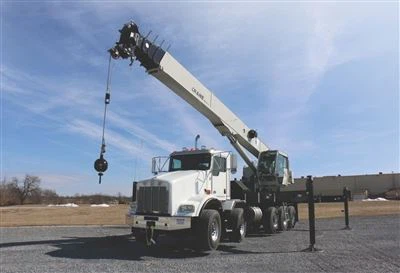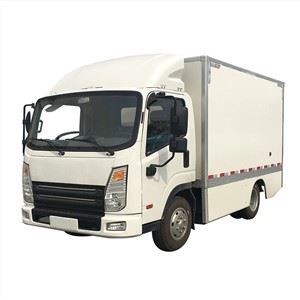How Many Gallons in a Water Truck?

Water trucks are essential vehicles used in various industries, including construction, agriculture, and firefighting. Understanding the capacity of water trucks is critical for effective project planning and resource management. In this article, we will explore the question: How many gallons are in a water truck? We will examine the different types of water trucks, their capacities, and practical applications. Additionally, we will cover some tips for choosing the right water truck for your needs and answer common questions related to water truck usage.
Understanding Water Truck Capacities
The Basics of Water Trucks
Water trucks, also known as water tenders or water tankers, are vehicles designed to transport water to various sites. They typically consist of a tank mounted on a truck chassis, allowing for easy mobility and efficient distribution. Water trucks are commonly used for:
- Dust suppression on construction sites
- Floral and agricultural irrigation
- Firefighting operations
- Catering to rural and remote areas with water supply issues
Standard Water Truck Capacities
Water truck capacities can vary significantly based on their design and intended use. The most commonly used capacities are:
| Type of Water Truck | Capacity (Gallons) |
|---|---|
| Light-Duty Water Truck | 500 – 1,500 |
| Medium-Duty Water Truck | 1,600 – 3,000 |
| Heavy-Duty Water Truck | 3,001 – 5,000 |
| Super Heavy-Duty Truck | 5,001 – 10,000 |
These capacities reflect standard sizes; customized vehicles may hold more water depending on the manufacturer and specifications.
Types of Water Trucks
1. Light-Duty Water Trucks
Light-duty water trucks are ideal for small-scale operations, such as landscaping or small construction jobs. These trucks are versatile, easy to maneuver, and typically can hold between 500 and 1,500 gallons of water.
2. Medium-Duty Water Trucks
Medium-duty trucks are suitable for larger construction sites or agricultural applications, with capacities ranging from 1,600 to 3,000 gallons. They often feature additional capabilities, such as water spraying systems.
3. Heavy-Duty Water Trucks
Heavy-duty trucks are designed for intensive operations and can carry between 3,001 and 5,000 gallons. They are commonly used in firefighting and large-scale dust control.
4. Super Heavy-Duty Water Trucks
These trucks, with capacities exceeding 5,000 gallons, are typically used in mining and industrial sites, where significant water resources are needed for operations.
Applications of Water Trucks
Construction Sites
Water trucks play a pivotal role in construction, helping to minimize dust, ensure worker safety, and control environment conditions. By spraying water to suppress dust, they maintain visibility and improve air quality.
Agriculture
In agriculture, water trucks are invaluable for irrigation. During dry seasons, these trucks provide essential water supplies to crops, ensuring they receive adequate hydration.
Firefighting
In emergencies, water trucks can deliver water to firefighting efforts in areas lacking hydrants. Their ability to quickly transport large quantities of water makes them critical in preserving lives and property.
Rural and Remote Water Supply
In unincorporated areas or regions with unreliable water supply, water trucks deliver clean drinking water. This service is often relied upon in rural communities.

Choosing the Right Water Truck
Capacity Needs
Understanding how much water you need for your project is the first step in choosing the right water truck. Calculate your requirements based on the area covered and the time frame needed for watering.
Example Calculation
If you have a 5-acre construction site and need to dampen the surface for dust control, you might estimate needing approximately 100 gallons of water per acre. For 5 acres, you would need:
- 5 acres x 100 gallons/acre = 500 gallons
This estimation helps select a truck with a capacity of at least 1,000 gallons to ensure you can make multiple passes without constant refills.
Mobility and Maneuverability
Consider the terrain where the truck will operate. If you are working in tight spaces or rough terrain, a light or medium-duty water truck may be more suitable. Heavy-duty trucks, while larger, can be challenging to navigate in limited spaces.
Additional Features

Some trucks come with additional features, such as:
- Water spray systems for efficient distribution
- Adjustable spray nozzles for varying water flow
- Tank lining to prevent contamination
Budget Considerations
The cost of renting or purchasing a water truck can vary based on size and additional features. Always consider your budget against your requirements.
Operational Tips for Using Water Trucks
Regular Maintenance
Regular maintenance ensures the truck operates effectively. Scheduled checks on the water pump, hoses, and spray system can prevent operational issues.
Efficient Water Dispersion
To minimize water waste, ensure that the spray system is calibrated correctly. Consider using water timers to manage the flow rate.
Compliance with Local Regulations
Check local regulations regarding water usage, especially in areas experiencing drought. Ensure you have the necessary permits for transporting and distributing water.
FAQs about Water Trucks
How many gallons does a standard water truck hold?
A standard water truck usually holds between 1,500 to 3,000 gallons, depending on its type and purpose.
What types of water trucks are commonly used?
Common types of water trucks include light-duty, medium-duty, heavy-duty, and super heavy-duty trucks, varying in capacity and features.
Can I rent a water truck?
Yes, many companies offer water truck rentals for short-term use, making them an economical choice for temporary projects.

What is the average cost of a water truck?
The cost can vary widely based on size and features, typically ranging from $30,000 to $100,000 for purchasing, while rental rates can be approximately $100 to $300 per day.
How does a water truck work?
A water truck functions by filling its tank from a water source and then distributing it through a spray system or hose at the destination site.
Are water trucks environmentally friendly?
Water trucks can be environmentally friendly when used properly, reducing dust pollution and ensuring water is used efficiently and responsibly.
